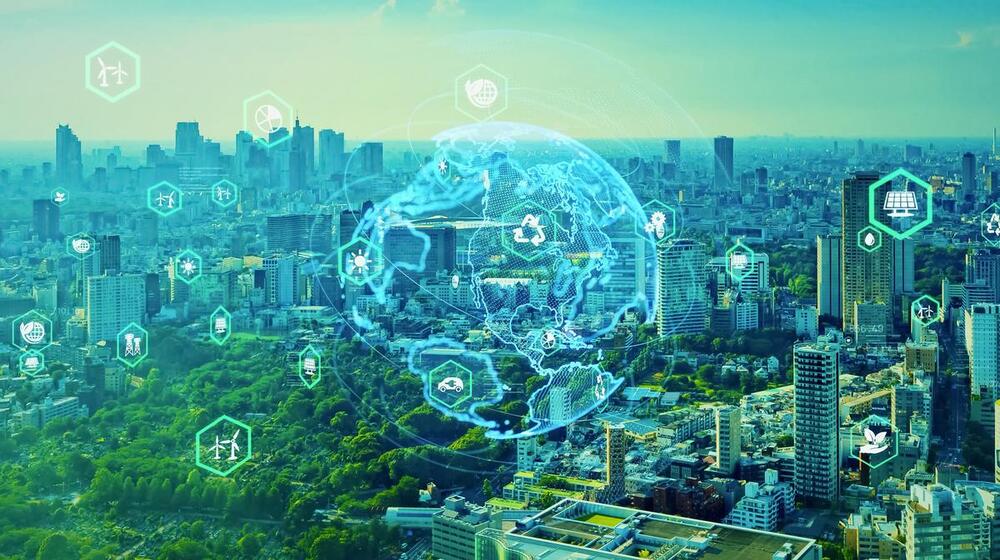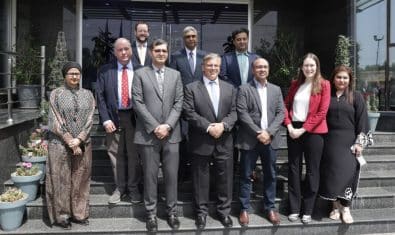Pakistan ranks as the 8th most vulnerable country to climate change, 18th in terms of highest disaster risks, 40th most vulnerable to tropical storms and 43rd to droughts among 190 countries, according to the World Bank.
The 2022 floods inflicted $14.9 billion in damages and $15.2 billion in economic losses, affecting nearly 33 million people and recovery will be going on for years.
Pakistan’s lifeline is agriculture and the concerned sectors which may feel the biggest impact of climate change. There is nothing more crucial than tackling climate change head-on and what is a better way to do so than utilizing technology and innovation.
Globally Climate Tech Startups raised $82 billion in 2022, a 20 percent increase on the previous year, according to Natasha Uderani from Data Darbar told ProPakistani. The United States accounted for $43.9 billion while $35.6 billion came from European-based companies, she added.
It’s evident from the yearly increase in funding that climate tech is a long-term innovation play and is expected to grow regardless of the ongoing economic slowdown and crunch in venture investments.
Pakistan can contribute far more to solving the climate crisis than its share in Global Green House emissions. Suftech is a startup that aims to solve the global plastic problem by upcycling plastic through its unique patent-pending technology.
“Plastic is a wonder material, with its low cost, durability and lightweight, and it’s causing a problem only due to incorrect disposal,” stated Ahsan Ejaz, co-founder of Suftech who has been in the Plastic Trade internationally for the last 13 years.
Co-founder Dr Basit Yameen is a tenured Chemistry Professor at LUMS with experience from Institutes like Harvard and MIT, designing multiple innovative solutions. Plastic constitutes 65 percent of the waste in Pakistan with 3 million tons of plastic waste generated in 2022 alone.
In contrast to the usual recycling where they downsize the plastic with a lower yield, our technology upcycles it replacing virgin plastic, said Ejaz. Suftech has upcycled nearly 30,000 kgs of plastic in a few months and saved $60,000 in imports by replacing plastic.
While plastic recycling globally faces the criticism of being a hoax with little or no feasibility, erected by hydrocarbon giants to shield themselves from accountability, Ejaz argued that their process is not capital or energy-intensive, their unit economics are positive, they target a limited number of labels in waste collection and return the same form with 0.2-0.4 percent weight loss at maximum.
We are currently focused on Polypropylene and Polyethylene and are looking to expand locally in Pakistan followed by expanding overseas, commented Fizza Hayat, Head of Design and Ops at Suftech.
She also explained that they are also open to licensing their technology internationally or growing it on their own.
Aabshar is another climate-tech startup providing specific patent-pending nozzles that can be installed on any ordinary tap within 30 seconds and claims to save up to 98 percent of water and 60 percent in electricity costs.
“Our primary aim is water conservation by reducing water wastage in households, mosques and corporate offices,” stated Khalid Wyne, Head of Marketing at Abshar. Freshwater availability has become a severe problem, especially in big cities like Karachi where a single water tanker can cost Rs. 6000-7000.
While there are similar products available internationally, our products are developed specifically for Pakistani water with higher salt concentration that clogs other nozzles, added Wyne.
These solutions are crucial as in Pakistan, the construction of both big & small dams seems like a distant dream and even if they are realized, the lavish use currently practised in Pakistan would be ill-advised, given the unchecked population increase.
While it’s tough to change public habits regarding resource usage especially given it adds additional costs initially for domestic users, Wyne explained that Abshar is also planning to provide some kind of credit scheme for low-income households while International expansion is also in the works, especially in the markets with better purchasing power & higher demand.
PickMyPlastic is another thoughtful initiative by SEFIRM led by Fariha Rizwan from Z2C Limited.
“It rewards users points for collecting plastic which can be redeemed in multiple ways. The collected plastic is later delivered to our recycling plant,” she explained while talking to ProPakistani. She said that they are also working on getting corporate partners to scale the initiative.
Pakistan’s International Climate Change Commitments under 2021 Nationally Determined Contributions (NDC) and domestic goals under the 2017 Climate Technology Action Plans are too ambitious and given the ongoing economic crisis, the government needs the private sector and innovation along with the international community, to even come near these goals.
On the other hand, Pakistan’s Climate-tech startups face multiple challenges in unlocking growth and long-term sustainability. The foremost of all is the lack of incentives for reducing emissions or the adoption of carbon-free technology. “Investments in climate-tech initiatives are not a lucrative proposition at the moment”, added Rizwan.
Governments around the globe are working to reduce emissions by incentivizing the adaptation of green technologies by making it harder for businesses to emit carbon and are raising money to invest in green tech. An estimated 46 countries have adopted some form of a carbon tax or emission trading scheme (ETS) to reduce emissions.
Although Pakistan has been considering the carbon tax for years, such a plan is unlikely to be implemented for multiple reasons. Pakistan’s industrial sector is already heavily taxed with declining competitiveness against regional players. On the other hand, studies state that introducing an emission trading scheme in the country holds significant feasibility.
The government needs to devise a framework, so businesses can become green without incurring major costs on themselves or the state for that matter. Another major challenge is the lack of awareness regarding the climate crisis.
Startups at the moment can not establish a climate problem on their own due to the lack of media coverage around pollution, waste and the resulting harms. “People know that there is an issue, but they don’t know what they should do about it,” added Rizwan.
She explained that a lot needs to be done about changing national habits and developing conscious consumption, especially at large events in order to provide a conducive environment for green technologies.






















